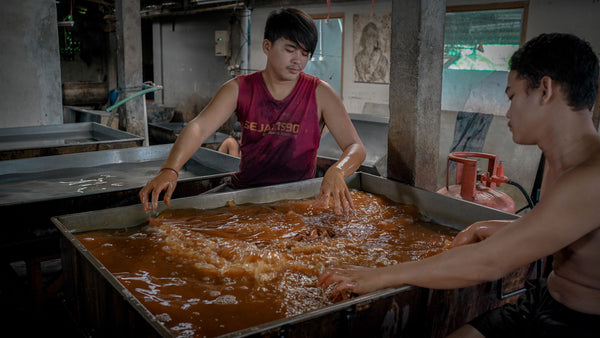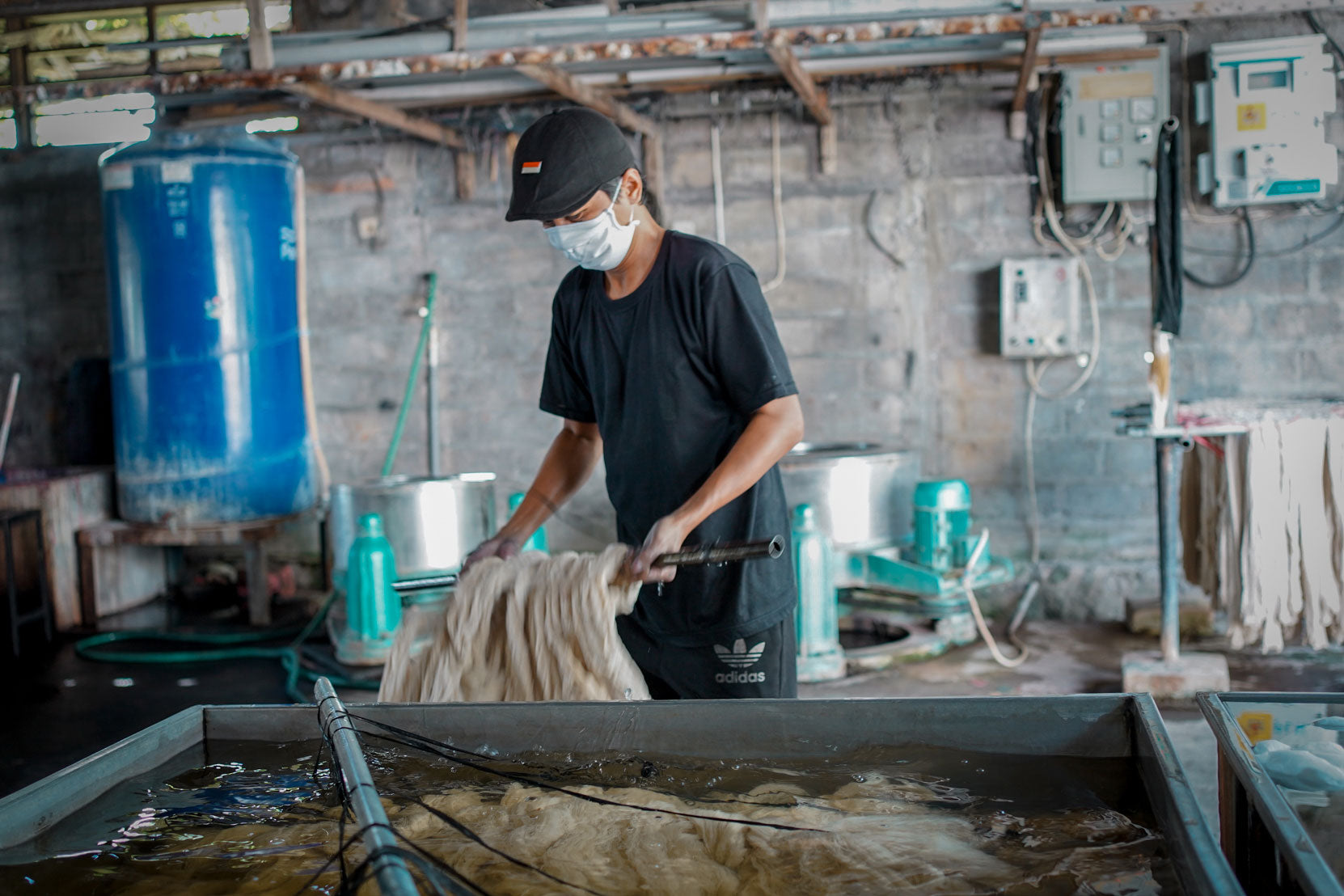Discover the natural beauty of Tulasii's plant-based dyes and botanical lounge collection, produced by our artisan team and sustainable workshop in Bali.
We began working with the small family-run all-natural dye workshop, Tarum, in 2019, after two previous visits to their enterprise in Blahbatuh village in the region of Gianyar, Bali. I was incredibly inspired not only by the beauty of their fabrics, but also their dedication to sustainability and keeping the traditional crafts of botanical dye and weaving alive through artisan designer collaborations.
Led by brothers Made and Andika, the Tarum enterprise is a humble grassroots operation with a mighty cause. As the island’s largest natural dye workshop, Tarum employs over 30 local craftspeople and 70+ weavers both in Bali and also across neighbouring Java and Lombok for the production and process of environmentally-friendly, sustainable textiles.


Tarum's ethos is to do no harm to the trees or plants from which they derive their botanical dye ingredients, relying instead on much more renewable methods for extracting their colour palettes, for example: leaves such as indigo from Tarum leaf (after which the workshop is named), yellow from Mango leaf, and brown from the Mahogany leaf, or in the case of our first Natural Dye Lounge Collection, the leaves of the deciduous Ketapang tree (to create the black of our Dewi robes) and Sappanwood (for
the beautiful blush tones of our Asri robes). Depending on the intensity required, the fabric or threads are dipped in the dye up to eight times and, depending on seasonal changes, each colour run can be subtly different and unique from the next.


Tarum gathers all of their natural materials, often working with local farmers to source leaf waste and cuttings, and also have their own garden in Tampaksiring, Bali, to produce renewable wood, leaves, fruits, and flowers that are dried, boiled or steamed to create their plant-based dye extracts. The leaf and plant waste is then composted and returned to the soil, and the workshop utilises a natural aquatic plant filtration system using Eceng Gondok (water hyacinth) that allows the runoff wastewater from the natural dyes to be fully broken down and absorbed before the filtered water is recycled to use in surrounding fields and rivers.




This is just the beginning of our collaboration with Tarum for our natural dye collections, and I can’t wait to share more with you all as 2021 unfolds.
All images (above) courtesy of Tarum

